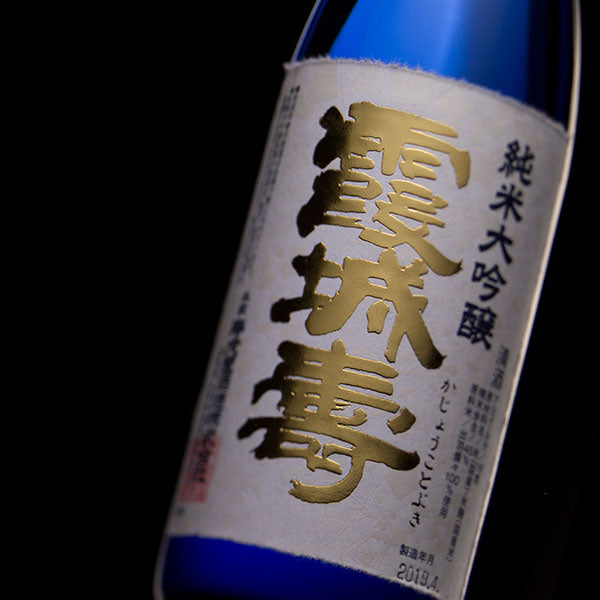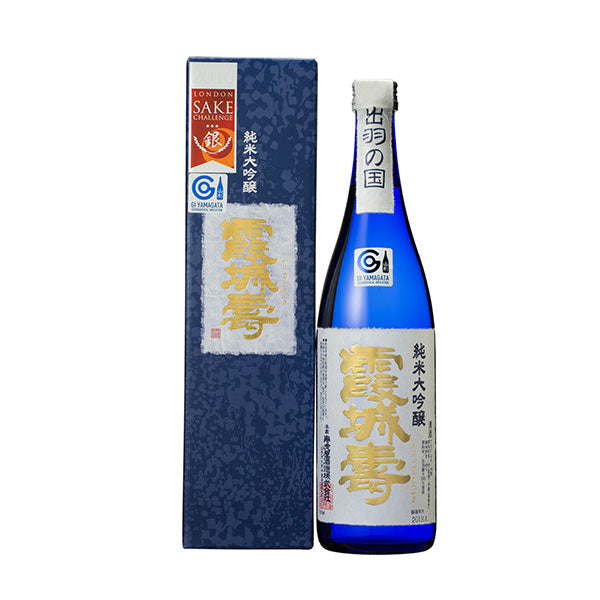-
 >
>
- Product list >
- Kajokotobuki Junmai-daiginjo undiluted without charcoaled (720ml)
Kajokotobuki Junmai-daiginjo undiluted without charcoaled (720ml)
詳しく見る
- *All prices shown are the product prices from the Japanpage:.
- *Product price can be shown in multiple currencies as reference values.
- *Payment should be made in Japanese yen.
- *After filling in delivery address, grand total (product price + shipping cost (packing + shipping + insurance) +tariffs & taxes) will be shown on the shipping cart page.
- *All prices shown are the product prices from the Japanpage:.
- *Product price can be shown in multiple currencies as reference values.
- *Payment should be made in Japanese yen.
- *After filling in delivery address, grand total (product price + shipping cost (packing + shipping + insurance) +tariffs & taxes) will be shown on the shipping cart page.
Awards
London Sake Challenge2016 Junmai Daiginjo Division Silver
"Yamagata "Dewasansan" brewer's rice grains are ground down to 45% of their original size, then carefully fermented with Yamagata yeast and melted snow from Mt. Zao, natural water full of the power of nature, to make a very special Japanese sake called "Kajokotobuki Junmai-daiginjo, undiluted without charcoaled". The elegant and gentle aroma of ginjo sake in harmony with the savory and deep flavor of rice produces a distinctive, refined, and mellow taste. Especially recommended for people who like Junmai style sake. The distinctive characteristic of the Japanese sake made in Yamagata is its overall gentleness and beauty. Try this bottle and you'll know what we mean. At London Sake Challenge2016, Europe's oldest Japanese sake competition run by professional sake sommeliers from various different countries, the Junmai Daiginjo was evaluated highly based on global standards and awarded the silver prize.
Pairing food proposed from Vendor
Steak, gratin, raw oysters
About "Kajokotobuki"
The name "Kajokotobuki" is a combination of the common name for Yamagata Castle, "Kasumigajo" with "kotobuki" (congratulations). Japanese sake made from high-quality rice and the soft water of Mt. Zao's underground springs (water formed when snow on Mt. Zao melts). With pride in our 300-year history as a traditional sake brewer, this brewery also use modern technology to product the ultimate beverage for your enjoyment.
Recommended temperature
- Atsukan (50 - 55℃)
- Jokan (45 - 50℃)
- Nurukan (30 - 40℃)
- Room temperature (15 - 20℃)
- Hanabie (10℃)
- Yukibie (5℃)
Type


Tag
Appearance
-
Clarity
Transparency
Hazy
-
Colour
Colorless
Dark brown
-
Intensity
Water
Deep
Nose characteristics
-
Intensity
Low
Strong
Taste characteristics
-
Light / Body
Light
Body
-
Sweet / Dry
Sweet
Dry
-
Simple / Complexity
Simple
Complexity
-
Acidity
Low
High
-
Umami
Low
High
-
Finish
Low finish
Long finish
Aroma and flavor
Apple
Detailed information
| Volume | 720ml |
|---|---|
| Size (L W H) | 7.5 x 7.5 x 30.0 cm |
| Weight | 1.2kg |
| Ingredients | Rice, Rice koji, Water |
| Region | Yamagata |
| Alcohol content | 16%vol. |
|
Sake Meter Value
|
-3 |
|
Acid level
|
1.7 |
|
Polishing ratio
|
45% |









